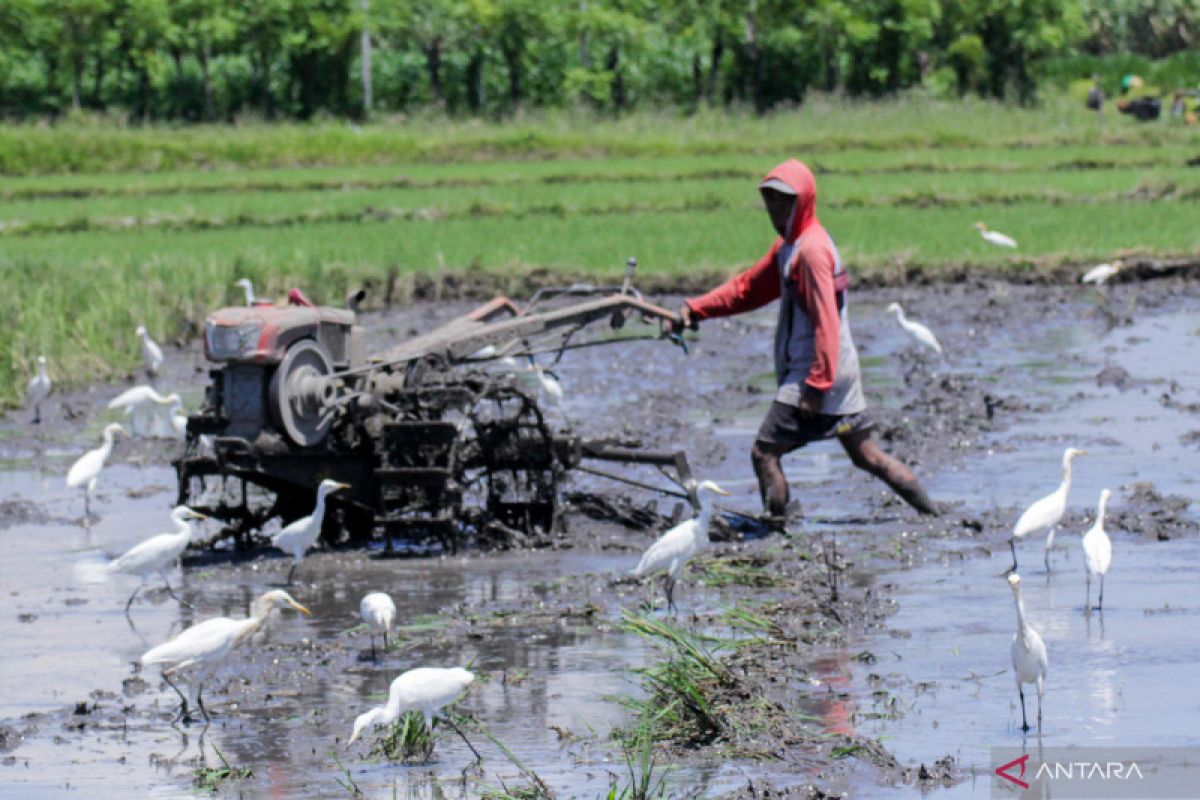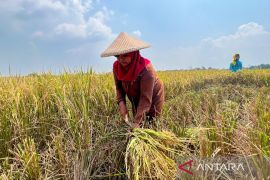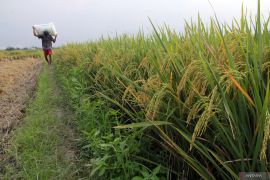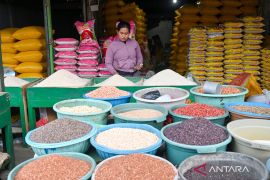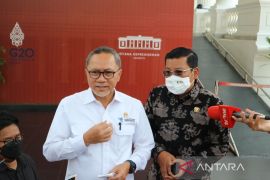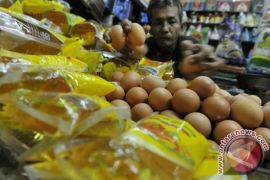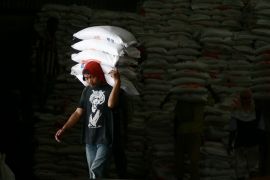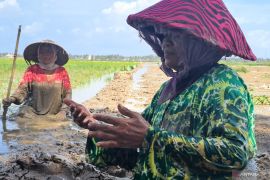According to Law No. 18 of 2012, a country's food stocks are considered secure when it can ensure the stocks either through domestic production, national food reserves, or—if the former two are inadequate—imports.
Food stock availability is a strategic matter, as it can spark conflict if the government fails to ensure it for the people.
Nevertheless, the Indonesian nation must stick to its founding principles to prioritize food issues. This was conveyed by Indonesia's founding father, Soekarno, about seven decades ago. He said that food is closely related to the survival of a nation.
Based on the definition of food stocks in Law No. 18 of 2012, it can be said that domestically produced food plays a key role in ensuring food stocks. It should also be noted that Indonesia has been blessed with abundant food resource potential.
In fact, Indonesia has won two prestigious awards for its success in realizing its dream of becoming a rice self-sufficient country. The awards were presented to the government by the Food and Agriculture Organization (FAO) and the International Rice Research Institute (IRRI) in 1984 and 2012, respectively.
The agriculture sector was the main driver of this success story, as were the farmers, who were the nation's main catalysts in achieving the awards.
Farmers, especially those producing rice, were the ones who polished the nation's reputation on the international stage. Farmers, along with their families, work hard in rural areas to produce the nation's main food ingredients, which, in turn, can help the government ensure the survival of the nation.
However, it is unlikely that farmers could have increased their production rate without the involvement of agriculture instructors. Hence, the country's success in becoming rice self-sufficient was owed to farmers and their instructors.
In the eyes of the farmers, agriculture instructors are teachers as well as helping lights, as they provide guidance, education, and training to farmers.
A sound level of creativity and the ability to innovate are essential for instructors to carry out their duties as per expectations. The instructors must be able to proactively scout farming ingredients that suit the needs of farmers.
As agents of change, agriculture instructors must possess the proper knowledge to offer ways and measures to farmers on how to optimally manage their agriculture businesses.
Furthermore, the instructors should also be able to establish and maintain high-quality communication with farmers so that they can learn about what is needed by the farmers and their families. Communication is essential, considering the instructors' vital role in improving farmers' quality.
Food Reserves
In addition to efforts to ramp up domestic food production, Indonesia must ensure food stock security by maintaining the potency of the nation's food reserves. The nation must properly prepare its food reserves in six forms, according to the relevant law.
The first is in the form of the National Food Reserve, which constitutes the overall food stock in the entire republic that is preserved to meet people's consumption needs and to address issues related to food shortages, disruptions in supply and prices, and emergency conditions.
Secondly, the nation must ensure the availability of the Government Food Reserve, which is controlled and managed by the central government.
Furthermore, the third, fourth, and fifth forms are food reserves that are managed by the governments at the provincial, district/municipal, and village levels, respectively.
Last but not least, the nation must also ensure the People's Food Reserve, namely the reserve that is owned and managed by the people at the level of traders, communities, and households.
All six forms of reserves must be planned carefully. It is necessary to interconnect all the food reserves to create a whole unit of holistic reserves.
However, it should be noted that the nation can opt for imports in case of a shortfall in domestic production and food reserves to meet the needs of the people.
Moreover, the law does not prohibit imports. The government can resort to an import policy in the event of inevitable extreme climate events that could interfere with domestic food production activities.
Speaking of import policies, the nation can reflect on the El Niño phenomenon that struck the country several years ago. The phenomenon resulted in a prolonged drought that led to an extreme fall in production activities.
During the drought, Indonesia failed to achieve its target as a result of planting failures in various regions. The situation pushed the government to opt for food imports.
Such an unwelcome event must be prevented from happening again. To that end, all parties must seriously take into account the forecast of El Niño in Indonesia in the coming months. All parties should jointly work to address the problems that may be caused by the heat phenomenon.
*) Entang Sastraatmadja is the chairperson of the Indonesian Farmers Association (HKTI) of West Java
Related news: Bapanas expedites procurement of garlic stocks as prices rise
Related news: Expect Indonesia to become world food barn by 2045: Minister
Copyright © ANTARA 2023
